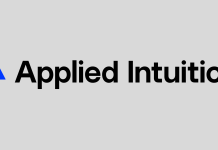Bloomberg Tax is offering a software solution to the nagging issue of ASC 606 compliance.
Among a diverse array of features, Bloomberg Tax’s ASC 606 tool allows businesses to use automation, implement centralized financial control and generate an audit trail for revenue recognition.
The ASC 606 regulation was instituted by the Financial Accounting Standards Board (FASB) in the United States and went into effect in 2018 for public companies. This regulations effectively standardizes how companies recognize revenue from customer contracts. The law will go into effect for private companies in 2019.
Under the new accounting standards, there will be international alignment as to how corporations recognize revenues and impact everything from contracts, pricing and quotes, to orders and revenue recognition.
For many businesses the rules pose a unique challenge. Many software businesses which employ a fast-evolving subscription model, for example, will find it is not so easy to comply. The ASC 606 tool aims to satisfy these users by offering a variety of reporting methods as well as on-demand forecasting to anticipate changes in contract components.
With the tool, users can also generate journal entries which allow account booking adjustments, a key feature for businesses looking to tweak their accounts to ensure their businesses meets the new standards.
High revenue businesses generating billions upon billions of dollars are another challenged group in the Revenue Recognition mix. These corporations will face an issue determining how to account for the seemingly endless combinations of revenue recognition.
To combat this, the ASC 606 tool accommodates data import into ERP systems to manage and streamline revenue management while company administrators keep a firm hand on internal controls. Large scale projects like this will also benefit from a central repository for contracts and other documents, along with automated workflows.
According to a recent survey conducted by PwC, almost half (44%) of private businesses, are still in the assessment phase of implementing the standard. Those who had completed the project totaled about 24%, with the reaming 32% stating they were remediating known issues.
























